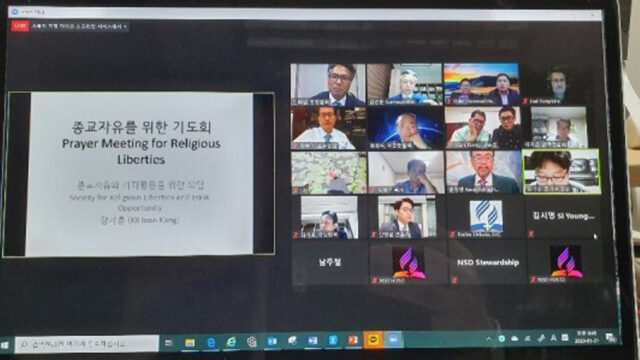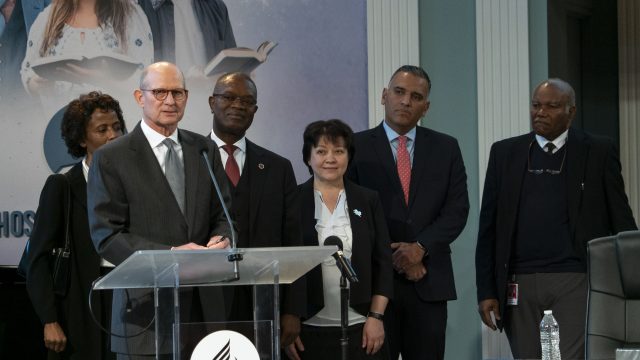Christian songs are powerful ways to convey and teach the truth.

If you had been a Christian during the Middle Ages, you would not have been allowed to sing congregational songs in church unless you were a priest or a professional male choir member. You also would have been forbidden to play musical instruments. The use of musical instruments was shunned at Christian worship services for centuries.
Why were these elements prohibited in Christian worship if the Word of God recurrently invites us to “shout with joy to the Lord, all the earth! Worship the Lord with gladness. Come before him, singing with joy” (Ps. 100:1, 2),1 as well as to praise Him with horn, lyre, harp, tambourine, flute, loud cymbals, and clanging cymbals (see Ps. 150)?
During the Council of Laodicea (A.D. 363-364), the Church Fathers forbade congregational singing, the use of musical instruments, and the borrowing of tunes from the secular repertoire. Worship practices were quickly and dangerously shifting from the biblical model to a model based on tradition and church authority.
Christian Music Expresses Christian Theology
Part of the theology behind the prohibition of congregational singing during the Middle Ages was that church leaders believed it was their job to read and interpret the Bible for the members and to intercede for them before God. They sang for them as well. The voice of the congregation was not only inaudible while the choir was singing—the people also didn’t have a voice in public prayer, Scripture reading, or church decision-making.
Then in the sixteenth century Martin Luther led a theological reformation that democratized congregational singing and brought soli Jesu and sola scriptura back to the center of Christian theology and music. Luther gave back to the congregation the right to sing in the spirit of biblical worship, in which we are all invited to sing with the spirit and the understanding (1 Cor. 14:15), to use instruments as part of worship (Pss. 149; 150), and to integrate into worship not only the mind and spirit but also the body (Pss. 103; 104; 150).
Sing a New Song!
Singing within a Christian community is an expression of worship, and as such it is dedicated to God. As we worship with songs, we also connect to one another, thus edifying the body of Christ.
The Bible repeatedly invites us to sing a new song. Many of the hymns in today’s Seventh-day Adventist Hymnal were not only new in their time but revolutionary as well. In his book Ellen White and Music Paul Hamel writes: “The importance of church music in the lives of nineteenth-century Seventh-day Adventists is clearly indicated by the fact that between 1849, when the first Adventist hymnal was published, and 1900, when Christ in Song came into use, they published 23 songbooks.”2
One hundred fifty years ago Adventist pioneers had an innovative vision for the church regarding music and worship. They were proactive in creating and compiling new hymns. They were publishing a new songbook almost every other year. During the eighteenth and nineteenth centuries most of these Lutheran chorales—also called Protestant hymns—were vibrant expressions of spiritual revival. Many of these powerful hymns are timeless and still relevant to our own generation. Some others, however, became obsolete. Never in Scripture do we find an invitation to “keep singing the old songs.” Just the opposite: “Sing a new song to the Lord! Let the whole earth sing to the Lord!” writes the psalmist (Ps. 96:1).
How can we integrate new songs into our repertoire to help our worship service be more relevant to the congregation? Here are a few tips that may facilitate the process:
Blend old and new repertoires: Paul’s formula in Colossians 3:16 is truly effective: “Sing psalms and hymns and spiritual songs” (see also Eph. 5:19). Diversity in musical styles is beneficial. Each congregation embraces different generations and cultural backgrounds; therefore, the selection of the songs should take that reality into account. Maintaining a varied repertoire that includes powerful hymns and relevant contemporary songs has been proven to be the best practice.
Teach one song at a time: Congregations often may complain about being “lost” when the worship team continually sings new songs that most people don’t know. Introducing one or two new songs every month usually works in most churches. If a new song is taught, it is more effective to sing only the melody the first time—without harmonization or even instrumentation—so the congregation can learn it more easily.
Listen: Congregational songs are expressions of worship intended to be sung by everyone. We gather and sing together as a response to God’s invitation. As we sing of our love for Him with our whole hearts and our whole selves, we are renewed individually, and community bonds are cultivated. It’s important that the majority of the congregation engages in singing. If people are not singing, we need to understand the reason and find a solution. Don’t be afraid of listening to the opinions of people in your congregation. Genuine conversation needs to take place so that people feel a true sense of support and confidence. Distributing a survey at least once a year is a good way to be attentive to the congregation’s suggestions and comments.
Keep Jesus at the center of the message: “Song is one of the most effective means of impressing spiritual truth upon the heart,”3 writes Ellen White. Christian songs are powerful ways to convey and teach the truth. Let’s ground God’s message in Jesus. Jesus was and will always be the center of Christian worship. While teaching doctrine through song, let’s not lose sight of the centrality of Jesus.
Continue to Evolve
Lilianne Doukhan reminds us that “a new religious experience or a renewed understanding of religious beliefs generally results in the creation of new forms of expression.”4 Music is a language that keeps evolving. Worshipping God through music entails constant renewal. It also implies a creative, inquisitive attitude, and carries with it the responsibility of being agents that channel positive change.
We await the day when every tribe, language, nation, and people will sing as one congregation before the throne of God. Until then, God will grant us His wisdom as we continue to look for genuine ways to worship Him together.
1 Bible texts in this article are taken from the Holy Bible, New Living Translation, copyright (c) 1996, 2004, 2015 by Tyndale House Foundation. Used by permission of Tyndale House Publishers, Inc., Carol Stream, Illinois 60188. All rights reserved.
2 Paul Hamel, Ellen White and Music (Hagerstown, Md.: Review and Herald Pub. Assn., 1976), p. 26.
3 Ellen G. White, Evangelism (Washington, D.C.: Review and Herald Pub. Assn., 1946), p. 500.
4 Lilianne Doukhan, In Tune With God (Hagerstown, Md.: Review and Herald Pub. Assn., 2010), p. 150.








